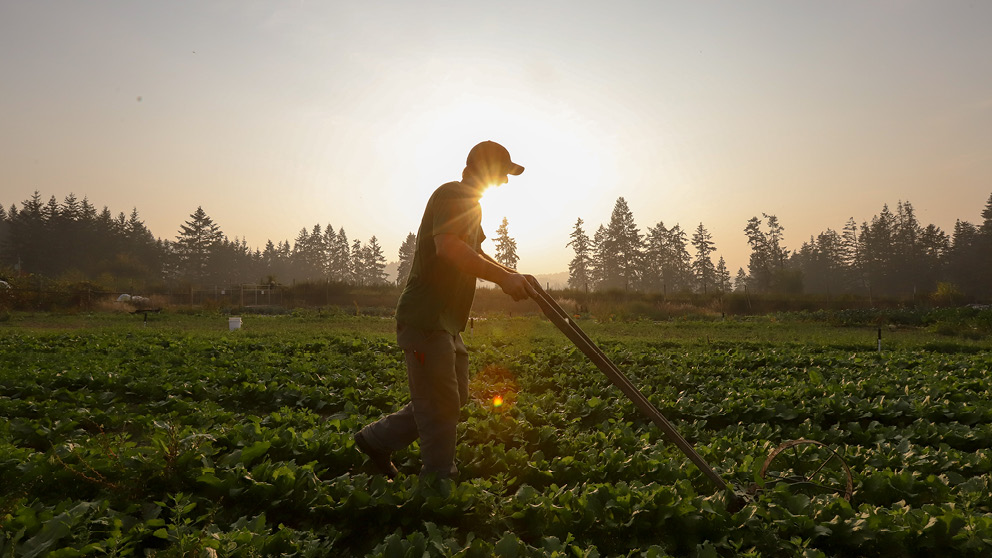How do I transition to full-time farming from an off-farm job?

Farming full time is a wonderful thing. But not everyone can do it. Some contend with an off-farm job to help pay for the farm, while others are unsure of how to even get in the game. There are countless considerations to review, from location and weather to markets and agronomics. Read advice from three experts on what they believe are key areas of focus when transitioning to farming full time.

Human Resources Consultant and Advisor, Regina, SK.
Picture a tractor. Now ask, “Who bought it? Who operates it? Who services it? Who orders its parts?” The answer used to be one person. Today, it could be one person per question. To transition to farming full time, you need a clear vision of the future, on a personal level and for the farm. This may require a substantial upgrade of the management side of the business.
A first step is to ensure financial and business plans are in place, plus a management strategy to succeed at carrying out these plans. These plans are inextricably linked and one cannot work without the others. You also need finances available to facilitate the change. For example, know how you and other team members will be compensated for your skillsets, and how you value your labour.
You may also need to manage, hire and retain employees and give performance evaluations. Any management experience from a past job will be an asset to success, and a strategy to this end will bolster your experience, providing clear operational guidelines.
Family farms are run with increasingly corporate sophistication due to increased risks and responsibilities, so communication is important. Ensure roles and responsibilities are well established so everyone is on the same page and there are no surprises.
This also helps to manage conflict and increase profitability, efficiencies and organization. But give yourself the flexibility to amend guidelines as often as necessary to reflect the current reality of the farm. Write out what you’d like your next one, five and 10 years to look like. This is a natural and simple entry point into vital conversations. As part of this exercise, envision what the management structure will look like in each scenario. If all make financial and personal sense, farming full time is likely feasible.

Senior Vice-President, Agriculture, MNP, Edmonton, Alta.
Knowing if and when you can move into full-time farming requires many things, including a strong and focused financial plan. If it doesn’t work on paper, it will probably not work in reality. Before you do anything, run the numbers. It’s okay if you have to adjust your plan, and it’s certainly a lot easier when it’s just written on paper and you’re not already headlong into farming.
Once you have a working plan on paper, you can begin to ‘stress-test’ that plan to ensure it will withstand the sometimes-harsh realities of farming. What happens if you face a drought, flooding, hail or severe livestock disease? If you get into one of those situations, does your plan still work, or are you just burning equity to keep living?
Keep projections realistic as well. If you use high yields and prices for revenue projections, you leave yourself exposed to huge potential risks. You can’t just pencil it out on gross margin – it must be done on net income because the net is what’s available to you.
Consider scenarios. If the worst case means you can’t farm and the best case means you are swimming in cash, what’s the average of that? That’s what you need to look for because you’ll have good and bad years. If the first two years you farm are bad, will you be able to keep going? You must be stable enough to handle that.

Past-President, Canadian Federation of Agriculture, Albany, P.E.I.
I rejoined my family ag businesses full time after working in Canada and abroad in an array of jobs. I find that even beyond the stresses of markets and other outside factors, agriculture is an emotional roller-coaster. Remember this when considering full-time farming.
Like many, planting and harvest are ‘go’ times for us, with full days and little or no time for self-care. When those seasons end, I personally experience a huge emotional transition. Developing the capacity for the demanding seasons and, on the flip side, managing the slower-paced times is something I’m slowly catching on to. Consider that the pace differs from many off-farm jobs and will be a lifestyle shift.
It’s fair to say that many full-time farm operators feel a lot of guilt in agriculture as well, compared to those who have off-farm employment. A lot of responsibility, risk and decision-making will fall on your shoulders. The farm operators I most admire give themselves permission to take time for themselves, especially during busy periods. This investment is so important because our mental and physical health is paramount.
Consulting with third-party business and financial advisors can also help to alleviate the weight of heavy decisions that can take a mental toll. Advisors are invaluable for the confidence they can help to instil when you become fully dependent on the farm business thriving, compared to bringing in income from off-farm employment.
Prepare yourself for full-time farming by having business plans in place. Anticipating what’s coming can help smooth out some of those large emotional peaks and valleys. Treat yourself well and have support from the people that are closest to you.
From an AgriSuccess article by Trevor Bacque.

There’s a lot to consider when starting a farm, from finances and equipment to learning the ins and outs of the marketplace. Get tips from first-time operators as they share lessons learned.
